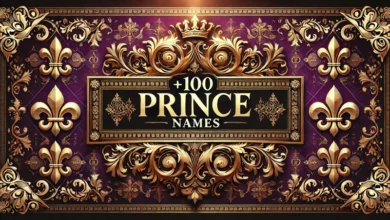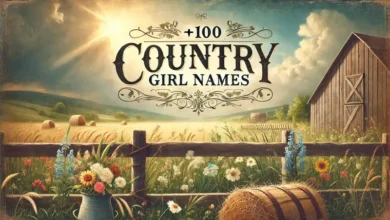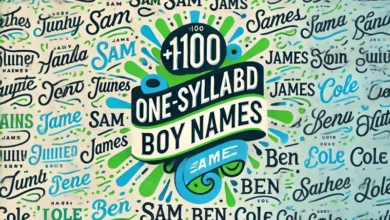Baby name
+239 Timeless Vintage Boy Names That Never Go Out of Style
For copy name or description, please click on that!
| Name | Description |
|---|---|
Cornelius | A Latin name meaning "horn." A strong, historical name often used in the 19th century. |
Wilbur | Of Germanic origin, meaning "wild boar." It has an old-fashioned, countryside feel, famously linked to the character in Charlotte's Web. |
Louis | Of French and German origin, meaning "famous warrior." A name associated with French royalty, it conveys strength and legacy. |
Abner | A Hebrew name meaning "father of light." This old-fashioned name has strong biblical roots. |
Barnaby | An Aramaic name meaning "son of consolation." A quirky and charming vintage name. |
Looking for a unique and timeless name for your baby boy? Consider vintage names! These classic monikers have stood the test of time, offering a blend of tradition and charm.
In this article, we’ll explore the allure of vintage boy names, highlighting their historical significance, modern appeal, and a variety of options to inspire your choice. So, let’s dive in and discover the perfect vintage name for your little one!
Vintage Boy Names
- Arthur – Of Celtic origin, meaning “bear.” Known for its association with the legendary King Arthur, symbolizing bravery and nobility.
- Theodore – A Greek name meaning “gift of God.” Popular in the 19th century, it conveys a sense of divine favor and intellect.
- Henry – German in origin, meaning “home ruler.” A name of many kings, giving it a royal and commanding feel.
- Walter – Derived from Germanic roots, meaning “ruler of the army.” It has a strong, vintage charm and was very popular in the early 1900s.
- Samuel – A biblical name meaning “heard by God.” It has been a steadfast favorite throughout history, exuding wisdom and faithfulness.
- Charles – Meaning “free man” in Germanic origin, Charles has a royal history and has been borne by many kings and rulers.
- George – From the Greek “georgos,” meaning “farmer.” It’s a sturdy, traditional name, famously carried by kings and notable figures.
- Frederick – Of German origin, meaning “peaceful ruler.” Frederick was highly popular in the 18th and 19th centuries and symbolizes leadership and serenity.
- Edward – An Old English name meaning “wealthy guardian.” A timeless classic, it conveys a sense of nobility and responsibility.
- Albert – Derived from German, meaning “noble” and “bright.” Associated with Prince Albert of the UK, it has royal ties and a dignified presence.
- Ernest – Of German origin, meaning “serious” or “resolute.” It became widely popular due to Oscar Wilde’s play The Importance of Being Earnest.
- Clarence – A Latin name meaning “bright” or “clear.” Once a common choice in the 19th century, it evokes a sense of clarity and nobility.
- Louis – Of French and German origin, meaning “famous warrior.” A name associated with French royalty, it conveys strength and legacy.
- Ralph – Derived from Old Norse, meaning “wolf counselor.” This name has a rugged yet refined history in English-speaking countries.
- Harold – An Old English name meaning “army ruler.” It became popular due to the legendary Anglo-Saxon King Harold of England.
- Leonard – Of German origin, meaning “brave lion.” This name has an old-world charm with a bold, animalistic undertone.
- Oscar – Of Irish origin, meaning “deer lover” or “friend of the deer.” A unique vintage name, it was revived in the 19th century.
- Victor – From Latin, meaning “conqueror” or “victor.” It conveys a sense of victory and power, making it a favorite throughout history.
- Raymond – Of German origin, meaning “wise protector.” It was a popular name in the early 20th century, symbolizing intelligence and protection.
- Augustus – Latin in origin, meaning “great” or “venerable.” Associated with Roman emperors, it carries a sense of grandeur and dignity.
- Vincent – A Latin name meaning “conquering.” Known for its historical association with figures like Vincent van Gogh, it exudes creativity and strength.
- Clyde – A name of Scottish origin, meaning “warm” or “friendly.” This charming vintage name brings to mind the famous Clyde River in Scotland.
- Felix – Latin for “happy” or “fortunate.” It became popular in the Victorian era and symbolizes good luck and joy.
- Everett – An Old English name meaning “brave as a wild boar.” Popular in the 19th century, it evokes courage and tenacity.
- Calvin – Of Latin origin, meaning “bald.” It gained popularity through the French theologian John Calvin and has a scholarly and intellectual air.
- Leon – Of Greek origin, meaning “lion.” A strong, regal name, Leon has been a favorite across different cultures, symbolizing power and bravery.
- Amos – A Hebrew name meaning “carried by God.” A timeless biblical name with vintage appeal, known for its simple yet profound meaning.
- Silas – Of Latin origin, meaning “wood” or “forest.” Popular in early America, it conveys a connection to nature and has a strong, timeless quality.
- Felix – Latin for “fortunate” or “happy.” This name conveys joy and success, and it was a favorite among Romans.
- Bernard – Germanic in origin, meaning “brave as a bear.” It’s an old-fashioned name that evokes strength and courage.
- Edwin – Old English for “rich friend.” Edwin has a noble and intellectual feel, popular in Victorian times.
- Archie – A diminutive of Archibald, meaning “genuine and bold.” This name has a charming, friendly vibe, often associated with old-time England.
- Winston – Of Old English origin, meaning “joyful stone.” Known for its association with Winston Churchill, it carries a sense of leadership and wisdom.
- Cecil – Of Welsh origin, meaning “blind.” This elegant name has an aristocratic tone and was a popular choice among British nobility.
- Milton – Old English, meaning “settlement with a mill.” Known for poet John Milton, it exudes literary flair and old-world sophistication.
- Rupert – A German variant of Robert, meaning “bright fame.” Rupert has a quirky yet vintage appeal, often associated with British culture.
- Hugo – Of Germanic origin, meaning “mind” or “spirit.” Popular across Europe, it has a timeless, intellectual feel.
- Ambrose – Latin for “immortal.” Ambrose has an ancient, dignified air, and was used by several early Christian saints.
- Clarence – Of Latin origin, meaning “bright and clear.” This regal name was popular in the 19th century and carries a sense of elegance.
- Desmond – Of Irish origin, meaning “from South Munster.” It has a noble charm, with historical ties to Irish aristocracy.
- Douglas – A Scottish name meaning “dark stream.” Popular in the early 20th century, it brings to mind strength and rugged landscapes.
- Harvey – Of French origin, meaning “battle worthy.” It was highly popular in the late 19th and early 20th centuries, symbolizing strength and valor.
- Grover – Of Old English origin, meaning “from the grove.” Grover was a popular name in early America, especially due to President Grover Cleveland.
- Lionel – Of Latin origin, meaning “little lion.” It brings to mind elegance and royalty, evoking both strength and gentleness.
- Jasper – Of Persian origin, meaning “bringer of treasure.” This name has a mystical and vintage flair, often linked with refinement.
- Simon – Of Hebrew origin, meaning “he has heard.” A strong biblical name with timeless appeal, symbolizing faith and integrity.
- Roland – Of Germanic origin, meaning “famous throughout the land.” Popular in medieval literature, it symbolizes heroism and adventure.
- Reuben – A Hebrew name meaning “behold, a son.” It’s a classic biblical name that has been in use for centuries, symbolizing legacy and tradition.
- Edwin – An Old English name meaning “wealthy friend.” This name has vintage charm and was widely used in the late 19th and early 20th centuries.
- Clarence – Of Latin origin, meaning “bright.” Clarence has a sophisticated and elegant feel, often associated with nobility and upper-class society.
Unique Vintage Boy Names
- Atticus – A Latin name meaning “man of Attica,” known for its literary connection to To Kill a Mockingbird.
- Orson – Of Latin origin, meaning “bear cub.” It has a rare, vintage charm and is associated with the filmmaker Orson Welles.
- Ignatius – A Latin name meaning “fiery.” This name has a bold and unique sound, often associated with Saint Ignatius of Loyola.
- Alistair – Of Scottish origin, a variant of Alexander meaning “defender of man.” It’s a refined, vintage choice with a distinguished feel.
- Leopold – Of German origin, meaning “brave people.” It has a regal, old-world charm and was popular among European royalty.
- Percival – A French name meaning “pierces the valley,” famously associated with one of King Arthur’s knights.
- Silas – From Latin, meaning “man of the forest.” This name has rustic charm and historical significance, dating back to the early Christian era.
- Thaddeus – Of Aramaic origin, meaning “heart” or “courageous.” A strong, distinctive vintage name with a biblical connection.
- Amos – A Hebrew name meaning “carried by God.” A timeless biblical name with an old-fashioned, yet enduring appeal.
- Basil – Of Greek origin, meaning “kingly” or “royal.” It has a classic, regal vibe, often associated with British nobility.
- Chester – An English name meaning “fortress” or “camp of soldiers.” It’s quirky and old-fashioned, with a charming, distinctive sound.
- Ambrose – Of Latin origin, meaning “immortal.” A sophisticated name with ancient roots and a connection to early Christian saints.
- Rufus – A Latin name meaning “red-haired.” It has a strong, vintage feel, popular in Roman times and among early saints.
- Caspar – Of Persian origin, meaning “keeper of the treasure.” This name has a mystical, ancient quality and is linked to one of the biblical Magi.
- Linus – A Greek name meaning “flax.” It has a soft, melodic sound and ancient roots, being used by early philosophers and saints.
- Wallace – A Scottish name meaning “foreigner” or “Welshman.” Known for its connection to the legendary Scottish hero, William Wallace.
- Vernon – Of English origin, meaning “place of alders.” It has a vintage charm, often associated with 19th-century gentlemen.
- Phineas – A Hebrew name meaning “oracle” or “serpent’s mouth.” It’s a distinctive, old-fashioned name with biblical and literary connections.
- Ulysses – Of Latin origin, meaning “wrathful.” Known from Greek mythology and literature, it evokes a sense of adventure and heroism.
- Quentin – A Latin name meaning “fifth.” It has a classic, aristocratic feel, with a modern edge thanks to figures like Quentin Tarantino.
- Horace – Of Latin origin, meaning “timekeeper.” A name with literary connections to the Roman poet Horace, giving it a cultured, intellectual feel.
- Barnaby – Of Aramaic origin, meaning “son of consolation.” This quirky, vintage name has an old-world charm and a distinctive sound.
- Lionel – Of Latin origin, meaning “little lion.” A rare, noble-sounding name with regal undertones.
- Wilbur – Of Germanic origin, meaning “wild boar.” It has an old-fashioned, countryside feel, famously linked to the character in Charlotte’s Web.
- Erasmus – A Greek name meaning “beloved” or “desired.” This rare name has scholarly and historical associations, thanks to the philosopher Erasmus.
- Oswald – Of Old English origin, meaning “God’s power.” A strong, classic name with royal and saintly connections.
- Anselm – Of German origin, meaning “God’s protection.” This rare, saintly name has a serene and timeless quality.
- Montgomery – Of Norman origin, meaning “mountain of the mighty.” A vintage, aristocratic name with a strong, unique flair.
- Sylvester – Of Latin origin, meaning “wild” or “wooded.” Known for its association with early saints and the Hollywood actor, it carries both vintage and playful vibes.
- Lyle – A French name meaning “from the island.” A rare, vintage choice that has a soft, musical quality.
- Clement – Of Latin origin, meaning “merciful” or “gentle.” A vintage, saintly name that conveys kindness and virtue.
- Grover – An English name meaning “from the grove.” Popular in the early 20th century, it has a quirky, outdoorsy feel.
- Hiram – A Hebrew name meaning “exalted brother.” It has a biblical origin and was used frequently in the 19th century.
- Cornelius – Of Latin origin, meaning “horn.” A distinguished, historical name with a strong Roman heritage.
- Isidore – A Greek name meaning “gift of Isis.” This name has an ancient, scholarly feel, often associated with early saints and intellectuals.
- Roscoe – An Old Norse name meaning “deer forest.” It has a rugged, outdoorsy vibe and was popular in the early 1900s.
- Marius – Of Latin origin, meaning “male” or “manly.” This name has a Roman legacy, often associated with military figures.
- Percival – A French name meaning “pierces the valley,” famously linked to one of King Arthur’s knights.
- Tobias – A Greek name meaning “God is good.” A classic biblical name with a strong, timeless quality.
- Eldridge – Of Old English origin, meaning “old wise ruler.” This unique, vintage name evokes an air of dignity and leadership.
- Otto – A Germanic name meaning “wealth” or “prosperity.” It has a strong, old-world feel with royal European associations.
- Basil – Of Greek origin, meaning “royal” or “kingly.” A vintage choice with a regal, dignified presence.
- Cyrus – A Persian name meaning “sun” or “throne.” Known for its association with ancient Persian kings, it has a powerful and historical resonance.
- Eldon – An Old English name meaning “sacred hill.” A rare and stately name with a vintage feel.
- Leander – Of Greek origin, meaning “lion man.” This name carries an air of ancient heroism and strength.
- Ambrose – A Latin name meaning “immortal.” A distinguished and ancient name with saintly connections.
- Orville – A French name meaning “golden town.” This name rose to prominence in the 19th century and carries a quaint, vintage appeal.
- Alaric – A Germanic name meaning “ruler of all.” This rare, strong name evokes images of leadership and power.
- Zebulon – A Hebrew name meaning “exalted.” It has a biblical origin and a unique, vintage sound.
- Dorian – Of Greek origin, meaning “of the Dorian tribe.” Made famous by the novel The Picture of Dorian Gray, it has a refined, literary quality.
Old-fashioned Boy Names 1700s
- Ebenezer – Of Hebrew origin, meaning “stone of help.” This name was popular in Puritan times and has a strong biblical association.
- Bartholomew – Of Aramaic origin, meaning “son of the furrow.” A common name in the 1700s with biblical roots.
- Abner – Hebrew for “father of light.” A classic biblical name popular among early American settlers.
- Solomon – A Hebrew name meaning “peace.” Associated with the wise king from the Bible, it was a popular choice in the 1700s.
- Jeremiah – Of Hebrew origin, meaning “appointed by God.” A traditional, biblical name widely used during the 18th century.
- Amos – A Hebrew name meaning “borne by God.” It has a simple, old-world charm and was a common name in the 1700s.
- Thaddeus – Of Aramaic origin, meaning “heart” or “courageous.” A name with strong biblical significance, often used in colonial America.
- Gideon – A Hebrew name meaning “mighty warrior.” This strong, biblical name was quite popular in the 18th century.
- Silas – Of Latin origin, meaning “forest.” Silas was a favored name among Puritans and colonial settlers in the 1700s.
- Phineas – A Hebrew name meaning “oracle.” This vintage biblical name was in use throughout the 1700s.
- Enoch – Of Hebrew origin, meaning “dedicated.” This biblical name was a solid choice in the 18th century for its spiritual significance.
- Nathaniel – A Hebrew name meaning “gift of God.” This classic name was widely used in both Europe and America during the 1700s.
- Jedidiah – Of Hebrew origin, meaning “beloved of the Lord.” A name with strong biblical roots, popular in the 18th century.
- Zachariah – Hebrew for “the Lord has remembered.” This old-fashioned biblical name was popular in early America.
- Cyrus – Of Persian origin, meaning “sun” or “throne.” This name gained popularity in the 1700s due to its strong, royal connotations.
- Leopold – A German name meaning “brave people.” This regal name was popular among European aristocracy in the 18th century.
- Abraham – A Hebrew name meaning “father of many.” Widely used in colonial America, this name carries deep biblical significance.
- Josiah – Hebrew for “God supports.” A popular name in the 1700s, especially among the Puritans for its biblical roots.
- Hezekiah – Of Hebrew origin, meaning “God gives strength.” A strong, ancient name often used in the 18th century.
- Obadiah – A Hebrew name meaning “servant of God.” This uncommon but biblical name was favored in the 1700s.
- Tobias – Of Greek origin, meaning “God is good.” This name has a timeless appeal, with roots in both the Bible and classical literature.
- Ephraim – A Hebrew name meaning “fruitful.” Common among early settlers in America, it was considered a strong, religious name.
- Ichabod – Of Hebrew origin, meaning “the glory is gone.” Although rare today, this biblical name was used in the 1700s.
- Elijah – A Hebrew name meaning “my God is Yahweh.” A classic biblical name that was highly popular in the 18th century.
- Benjamin – Of Hebrew origin, meaning “son of the right hand.” This timeless name was widely used in Europe and America during the 1700s.
- Isaac – A Hebrew name meaning “laughter.” Popular since biblical times, this name remained a common choice in the 18th century.
- Simon – Of Hebrew origin, meaning “he has heard.” This traditional name was favored in both Europe and colonial America.
- Reuben – A Hebrew name meaning “behold, a son.” A strong biblical name popular among settlers in the 1700s.
- Samson – Hebrew for “sun.” Known for the biblical strongman, Samson was a bold name choice in the 18th century.
- Cornelius – A Latin name meaning “horn.” A prominent name in the 1700s, especially in Europe, with both Roman and biblical associations.
Old-fashioned Boy Names 1800s
- Augustus – Of Latin origin, meaning “great” or “venerable.” Popular in the 19th century, often associated with nobility.
- Edwin – An Old English name meaning “rich friend.” It was a classic and common choice in the 1800s, exuding a scholarly charm.
- Franklin – Of English origin, meaning “free landholder.” A distinguished name often linked to historical figures like Benjamin Franklin.
- Jasper – Of Persian origin, meaning “bringer of treasure.” This name gained popularity in the 1800s due to its exotic, yet vintage appeal.
- Theodore – A Greek name meaning “gift of God.” Theodore became highly popular during the 19th century and remains a strong choice today.
- Clarence – Of Latin origin, meaning “bright” or “clear.” This name was widely used in the Victorian era and exudes elegance.
- Horace – A Latin name meaning “timekeeper.” It was a popular choice in the 1800s, often associated with intellectuals and poets.
- Ambrose – Of Latin origin, meaning “immortal.” A sophisticated name with ancient roots, often used in the 19th century.
- Oscar – Of Irish origin, meaning “deer lover” or “friend of the deer.” It became quite popular during the Victorian era.
- Rufus – A Latin name meaning “red-haired.” This name was frequently used in the 1800s and has a strong, bold sound.
- Silas – Of Latin origin, meaning “man of the forest.” Silas was a favored name in 19th-century America, evoking nature and strength.
- Ezra – A Hebrew name meaning “help.” This biblical name became fashionable in the 19th century and carries a vintage charm.
- Amos – A Hebrew name meaning “borne by God.” It was a common name among settlers in the 1800s, reflecting religious devotion.
- Levi – A Hebrew name meaning “joined” or “attached.” A classic biblical name that was frequently used in the 19th century.
- Barnabas – Of Aramaic origin, meaning “son of consolation.” This biblical name was relatively common in the 1800s.
- Hugh – Of Germanic origin, meaning “mind” or “spirit.” A popular choice in the 19th century, often associated with nobility.
- Roland – A Germanic name meaning “famous throughout the land.” This strong, heroic name was frequently used in the 1800s.
- Walter – Of Germanic origin, meaning “ruler of the army.” Walter was a strong and popular name during the 19th century.
- Solomon – A Hebrew name meaning “peace.” It has deep biblical roots and was commonly used in the 1800s.
- Luther – A German name meaning “people’s army.” It became a favored name in the 19th century, often associated with Martin Luther.
- Cyrus – Of Persian origin, meaning “sun” or “throne.” Popular in the 1800s, it evokes a sense of power and leadership.
- Frederick – Of German origin, meaning “peaceful ruler.” This royal-sounding name was widely used in 19th-century Europe and America.
- Orville – Of French origin, meaning “golden town.” This unique, old-fashioned name gained popularity in the 1800s.
- Chester – An English name meaning “fortress” or “camp.” Chester became popular during the 19th century and has a charming, vintage feel.
- Virgil – Of Latin origin, meaning “staff bearer.” A literary name, often linked to the Roman poet Virgil, popular in the 1800s.
- Gideon – A Hebrew name meaning “mighty warrior.” This biblical name was quite popular in the 19th century.
- Alonzo – Of Spanish origin, meaning “noble and ready.” This strong, romantic name was a favorite during the Victorian era.
- Simeon – A Hebrew name meaning “he has heard.” Popular in the 19th century, it has deep biblical roots and a strong, vintage sound.
- Reuben – A Hebrew name meaning “behold, a son.” This name was commonly used in the 1800s, reflecting its biblical significance.
- Zebedee – A Hebrew name meaning “gift of God.” This rare and old-fashioned name was sometimes used during the 19th century for its biblical associations.
Old Fashioned Boy Names 1900s
- Albert – Of German origin, meaning “noble” and “bright.” Popular in the early 1900s, especially in Europe, due to its royal ties.
- Harold – An Old English name meaning “army ruler.” This name was very common in the early 20th century.
- Stanley – Of Old English origin, meaning “stone clearing.” It was a strong and popular name in the early 1900s.
- Raymond – A German name meaning “wise protector.” It gained popularity in the early 1900s and remained a classic choice.
- Ernest – Of German origin, meaning “serious” or “resolute.” Popularized by literature, especially Oscar Wilde’s The Importance of Being Earnest.
- Clarence – From Latin, meaning “bright” or “clear.” Clarence was a fashionable name in the early 20th century, giving off a sophisticated air.
- Ralph – Derived from Old Norse, meaning “wolf counselor.” Ralph was a common name throughout the early 1900s.
- Herbert – Of German origin, meaning “bright army.” This old-fashioned name was a favorite in the 1900s.
- Leonard – A Germanic name meaning “brave lion.” Leonard was widely used in the 1900s, exuding strength and nobility.
- Edwin – Of Old English origin, meaning “rich friend.” A vintage name that was especially popular in the early 1900s.
- Bernard – Of Germanic origin, meaning “brave as a bear.” Bernard was a common name in the early 20th century, symbolizing strength.
- Chester – An English name meaning “fortress” or “camp.” Chester was a charming and popular name in the early 1900s.
- Elmer – Of English origin, meaning “noble” or “famous.” This name was commonly used in the early 20th century.
- Floyd – Derived from Welsh, meaning “gray.” Floyd was a trendy choice in the 1900s, exuding a rugged, old-world charm.
- Milton – An Old English name meaning “mill town.” Milton was a strong name choice during the early 1900s.
- Cecil – From Welsh, meaning “blind.” Cecil was a refined and aristocratic name commonly used in the early 20th century.
- Earl – Of Old English origin, meaning “nobleman” or “warrior.” It was widely popular in the early 1900s.
- Claude – From Latin, meaning “lame” or “limping.” Claude was a common name in the early 20th century, often considered artistic and intellectual.
- Lloyd – A Welsh name meaning “gray.” It was a favorite in the early 1900s and often associated with strength and stability.
- Clyde – Of Scottish origin, meaning “warm” or “friendly.” Clyde became a popular name in the early 1900s, symbolizing warmth and reliability.
- Francis – A Latin name meaning “free man.” It was widely used in the early 1900s and had religious connotations due to St. Francis of Assisi.
- Alfred – From Old English, meaning “wise counselor.” Alfred was a very popular name in the early 20th century.
- Eugene – A Greek name meaning “well-born” or “noble.” Eugene had strong appeal during the 1900s and was seen as a refined choice.
- Lawrence – Of Latin origin, meaning “from Laurentum.” Lawrence was a timeless name that gained significant popularity in the early 20th century.
- Gilbert – Of Germanic origin, meaning “bright pledge.” It was a well-loved name in the 1900s, symbolizing trust and loyalty.
- Norman – Of Old Norse origin, meaning “northman” or “Viking.” Norman was popular throughout the early 1900s, reflecting its adventurous heritage.
- Wallace – A Scottish name meaning “foreigner” or “Welshman.” Wallace was a prominent name in the 1900s, often linked to heroism and strength.
- Virgil – Of Latin origin, meaning “staff bearer.” This name was popular in the early 1900s, with strong literary associations.
- Vernon – Of French origin, meaning “place of alders.” Vernon was a common name during the 1900s, often associated with nature.
- Glenn – Of Scottish origin, meaning “valley.” Glenn was a popular name in the early 20th century, reflecting a connection to nature and simplicity.
Uncommon Vintage Boy Names
- Alaric – A Germanic name meaning “ruler of all.” A powerful and regal name from ancient times.
- Thaddeus – Of Aramaic origin, meaning “heart” or “courageous.” A strong, distinctive biblical name.
- Leander – A Greek name meaning “lion man.” This name has a heroic and romantic tone.
- Oswald – Of Old English origin, meaning “God’s power.” A vintage name with royal and saintly connections.
- Ambrose – From Latin, meaning “immortal.” A sophisticated, old-world name with a saintly association.
- Barnaby – An Aramaic name meaning “son of consolation.” A quirky and charming vintage name.
- Rufus – A Latin name meaning “red-haired.” It has a bold and unique vintage sound.
- Ignatius – A Latin name meaning “fiery.” It has a strong, ancient feel, often associated with saints.
- Cassius – Of Latin origin, meaning “hollow” or “vain.” A noble Roman name with a rich history.
- Phineas – Of Hebrew origin, meaning “oracle.” A biblical name with a timeless, vintage appeal.
- Linus – A Greek name meaning “flax.” It has an ancient, melodic sound, giving it an intellectual edge.
- Ephraim – A Hebrew name meaning “fruitful.” This biblical name has a rare, vintage charm.
- Percival – Of French origin, meaning “pierces the valley.” A name associated with Arthurian legend.
- Cornelius – A Latin name meaning “horn.” A strong, historical name often used in the 19th century.
- Horatio – Of Latin origin, meaning “hour” or “timekeeper.” A vintage name made famous by Shakespeare.
- Simeon – A Hebrew name meaning “he has heard.” It has a strong biblical history and uncommon charm.
- Zebedee – Of Hebrew origin, meaning “gift of God.” A distinctive and rare biblical name.
- Abner – A Hebrew name meaning “father of light.” This old-fashioned name has strong biblical roots.
- Eldridge – Of Old English origin, meaning “old wise ruler.” A stately, uncommon vintage name.
- Orville – A French name meaning “golden town.” This name rose to prominence in the 19th century and has a quaint vintage feel.
- Sylvester – Of Latin origin, meaning “wild” or “wooded.” Known for its connection to early saints, this name carries a timeless vintage flair.
- Reuben – A Hebrew name meaning “behold, a son.” A classic biblical name that is not commonly heard today.
- Lysander – A Greek name meaning “liberator.” It’s a bold, historical name with a rare, vintage touch.
- Ferdinand – A Germanic name meaning “bold voyager.” Often associated with royalty and explorers.
- Orson – A Latin name meaning “bear cub.” It has a vintage feel and is famously associated with filmmaker Orson Welles.
- Ulysses – Of Latin origin, meaning “wrathful.” A strong, heroic name from Greek mythology.
- Basil – Of Greek origin, meaning “royal” or “kingly.” A classic name that carries a sense of dignity and grace.
- Alistair – A Scottish name, meaning “defender of man.” It has a sophisticated vintage charm.
- Octavius – Of Latin origin, meaning “eighth.” A noble Roman name with a strong historical resonance.
- Anselm – A German name meaning “God’s protection.” A rare, saintly name with a serene, vintage quality.
- Erasmus – A Greek name meaning “beloved.” This scholarly name has ancient roots and a strong intellectual appeal.
- Leopold – Of German origin, meaning “brave people.” A regal, uncommon vintage name associated with European royalty.
- Grover – An Old English name meaning “from the grove.” Popular in the early 20th century, it has a rugged and vintage outdoorsy vibe.
- Bertrand – Of German origin, meaning “bright raven.” A noble-sounding name that was more common in the past.
- Clement – A Latin name meaning “merciful” or “gentle.” A vintage, saintly name with a soft and kind feel.
- Absalom – A Hebrew name meaning “father of peace.” A rare biblical name with a vintage edge.
- Vernon – Of French origin, meaning “place of alders.” A nature-inspired, uncommon vintage name.
- Amos – A Hebrew name meaning “carried by God.” A simple and rare vintage name with deep biblical roots.
- Theron – Of Greek origin, meaning “hunter.” A bold, uncommon name with a unique, vintage sound.
- Harvey – Of French origin, meaning “battle worthy.” This vintage name had a peak in the early 20th century.
- Oswin – An Old English name meaning “God’s friend.” A rare, medieval name with vintage appeal.
- Quentin – Of Latin origin, meaning “fifth.” This name has a vintage, aristocratic feel and remains uncommon.
- Ignatius – A Latin name meaning “fiery.” Known for its connection to Saint Ignatius, this name carries religious and historical significance.
- Alaric – A Germanic name meaning “ruler of all.” It’s a bold, regal name that has a strong vintage charm.
- Cedric – Of Celtic origin, meaning “bounty” or “pattern of generosity.” It has a unique, knightly sound and vintage appeal.
- Llewellyn – A Welsh name meaning “leader” or “lion-like.” This name has a musical, vintage charm that is uncommon today.
- Ptolemy – Of Greek origin, meaning “warlike.” A rare and ancient name linked to Egyptian rulers.
- Alphonse – A Germanic name meaning “noble and ready.” This name has a romantic, old-fashioned flair.
- Cassian – Of Latin origin, meaning “hollow.” This rare vintage name is linked to early saints and Roman history.
- Enoch – A Hebrew name meaning “dedicated.” A strong, vintage biblical name that carries a sense of ancient tradition.









